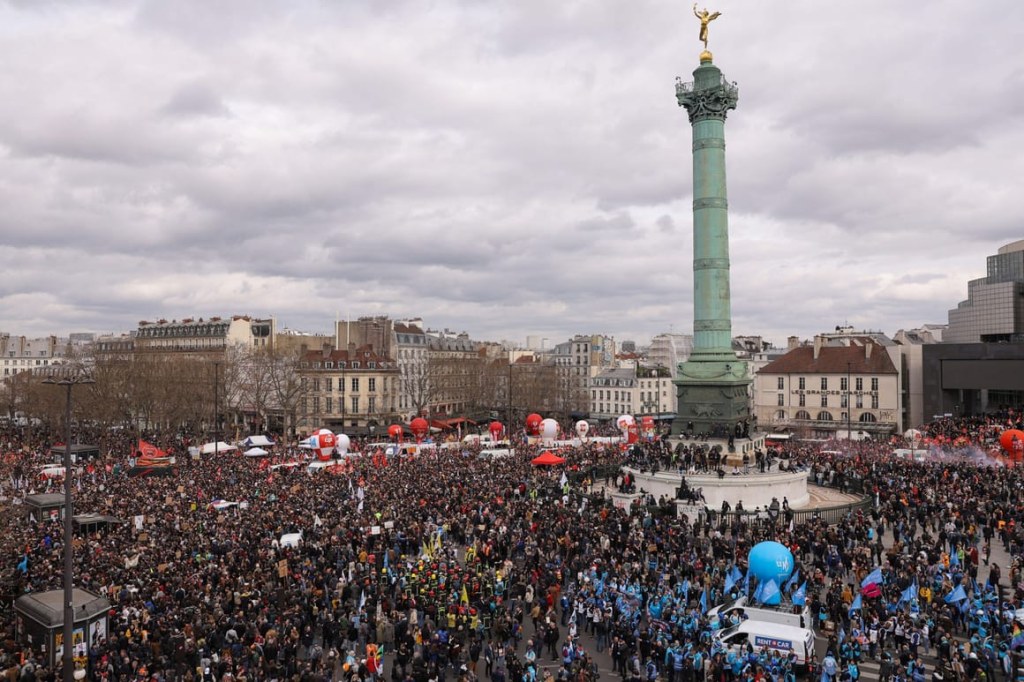France Political Turmoil: A Deep Dive into the Current Situation
Introduction
Dear Readers,
Welcome to this comprehensive analysis of the political turmoil in France. In recent years, the country has been facing significant challenges on the political front, with various events shaping the nation’s landscape. In this article, we will explore the key aspects of this turmoil, providing you with a clear understanding of the situation and its implications.

Image Source: politico.eu
So, let’s delve into the complexities of France’s political landscape and uncover the underlying factors that have contributed to the current turmoil.
Overview
To better comprehend the political turmoil in France, it is essential to examine the various aspects that have impacted the nation’s political stability. These include the causes, key players, timeline of events, geographical implications, rationale behind the turmoil, and the methods employed to address the situation. By understanding these elements, we can gain valuable insights into the challenges France is currently facing and the potential solutions that lie ahead.
What is France Political Turmoil?
🔍 France political turmoil refers to the period of unrest and instability within the country’s political sphere. It encompasses a range of issues such as social unrest, protests, clashes between different political factions, and challenges to the existing political system. This turmoil has had a profound impact on France’s political landscape, both domestically and internationally.
Who are the Key Players?
🔍 The key players in France’s political turmoil include various political parties, government officials, protest movements, and influential individuals. These actors have played a significant role in shaping the country’s political landscape and influencing the direction of the turmoil. Understanding their motivations and agendas is crucial to comprehending the complexity of the situation.
When Did the Turmoil Begin?
🔍 The political turmoil in France has been brewing for several years, with different events serving as catalysts for the unrest. From the rise of populist movements to controversial policy decisions, there have been multiple turning points that have contributed to the ongoing turmoil. Examining the timeline of these events provides valuable context to the current situation.
Where is the Turmoil Taking Place?
🔍 The turmoil in France primarily manifests in urban centers, where protests and demonstrations are more frequent. Paris, being the capital city, has been a focal point for dissatisfied citizens and political activists. However, the impact of the turmoil extends beyond the major cities, affecting the entire country and its international relations.
Why is France Facing Political Turmoil?
🔍 There are several underlying reasons behind France’s political turmoil. Key factors include socio-economic disparities, rising inequality, dissatisfaction with government policies, and a general sense of distrust towards the political establishment. These issues have fueled protests, led to the rise of populist movements, and created divisions within French society.
How is the Turmoil Being Addressed?
🔍 Addressing the political turmoil in France is a complex task that requires a multi-faceted approach. The government has implemented various measures to address the concerns of the citizens and restore stability, including policy reforms, dialogue with protest movements, and efforts to bridge the ideological divide. However, finding a lasting solution to the turmoil remains a significant challenge.
Advantages and Disadvantages of France Political Turmoil
🔍 Like any significant event, France’s political turmoil has both advantages and disadvantages. On one hand, it serves as a catalyst for change and mobilizes citizens to voice their concerns. The turmoil has also put important issues in the spotlight and has the potential to bring about policy reforms. On the other hand, the unrest can lead to social divisions, economic downturns, and political instability, which can hinder progress and create uncertainty.
Frequently Asked Questions (FAQs)
1. What are the main demands of the protest movements?
The protest movements in France have various demands, but some common themes include addressing economic inequality, improving social welfare, and reducing the influence of the political elite.
2. How have the political parties responded to the turmoil?
The political parties in France have responded differently to the turmoil. Some have embraced the concerns of the protesters, while others have taken a more confrontational approach. The response varies depending on the party’s ideology and vested interests.
3. What impact has the turmoil had on France’s international relations?
The turmoil in France has had implications for the country’s international standing. It has influenced France’s relationships with its European partners, as well as its global reputation. The unrest has also affected France’s ability to effectively address international challenges.
4. Are there any historical precedents for this level of political turmoil in France?
France has a history of political turmoil, with various episodes of social unrest and political upheaval. The current situation has echoes of past events, but it also has its unique characteristics that make it distinct from previous periods of turmoil.
5. What are the potential long-term consequences of the political turmoil?
The long-term consequences of the political turmoil in France are uncertain. It could lead to significant political realignment, policy reforms, or increased social divisions. The outcome will depend on how the various stakeholders navigate the challenges and find common ground.
Conclusion
In conclusion, France’s political turmoil is a complex and multi-faceted issue that requires careful analysis and understanding. By exploring the causes, key players, timeline of events, geographical implications, rationale, and methods employed, we can grasp the nuances of the situation. It is crucial for all stakeholders to work towards finding common ground and addressing the concerns of the citizens to restore stability and ensure a prosperous future for France.
Final Remarks
Dear Readers,
Discussing political turmoil is a sensitive and complex matter. It is essential to approach the topic with an open mind and a willingness to consider diverse perspectives. This article aims to provide an objective analysis of the situation, but it is crucial to continue seeking information and staying informed about the developments in France’s political landscape. Only through informed discussions and active participation can we contribute to positive change.